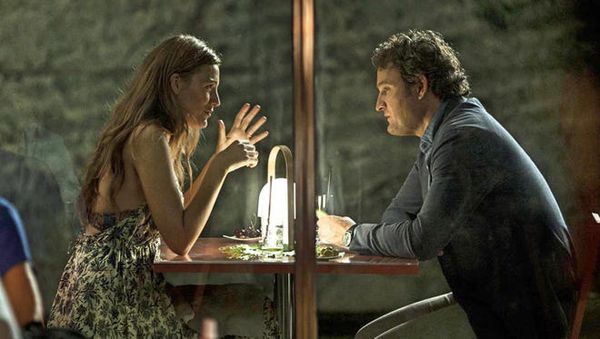Eye For Film >> Movies >> All I See Is You (2016) Film Review
All I See Is You
Reviewed by: Jennie Kermode

It can be difficult building and maintaining a healthy relationship as a disabled person. Not because there are no prospective partners out there - plenty of people understand that it's only one aspect of who a person is - but because one always has to be alert to the fact that some of the people who seem most understanding are not really interested in connecting on an equal basis, or even on being supportive because that's something they enjoy, but in exercising control. Marc Forster's latest deftly structured drama teases apart this aspect of a relationship without ever condemning its characters or depriving them of their individuality.
Blake Lively is excellent as Gina, who lost her eyesight as a child in the traumatic car crash that also caused the deaths of her parents. She's now living with husband James (Jason Clarke) in a stylish Bangkok apartment, enjoying a rich and active life. Although he's clearly also finding time to make a good bit of money, James is always there for her when needed, guiding her around and helping her to explore the world in that easy, unfussy way that can evolve between people over time. They're passionately in love and when the opportunity arises for Gina to have surgery that could restore part of her sight, the only worry either of them has is that it might fail and leave her disappointed. When it succeeds, however, it changes their relationship in ways that neither of them could have anticipated.

Blurring what we see from time to time, an effect enhanced by the brilliance of the city lights at night, Forster invites the viewer into Gina's world as it opens up, revealing things she hadn't expected. She has been able to see in the past so isn't massively disorientated by this new flow of information, and the film doesn't feel exploitative in the way that depictions of cures for difference often can. What she notices now is different, however. She's looking at the world with adult eyes and they're attracted to different things. This includes other men - and the subtle ways in which her husband habitually keeps her away from them.
What follows is part thriller - with James willing to go to disturbing lengths to keep Gina the way he wants her - and part voyage of discovery. Gina's newfound independence leads her to explore the world like an enthusiastic teenager, but with an adult's insight. Forster captures this beautifully, filling the frame with movement, colour and laughter, but with James always on the outside, often as a result of his own reticence. His world, like the apartment where Gina feels increasingly uncomfortable, remains silent and monochrome.
The success of this film stems from its delicate balance, its neatly woven subplots and avoidance of the direct confrontations usually associated with such tales. Despite everything that happens, we never get the feeling that these two people stop caring about each other, or that the loss of what they had was inevitable. There are obvious connections here to wider narratives about female empowerment and men who feel left behind, but Forster keeps the tone intimate and personal.
Despite an ending that layers on the drama and metaphor a bit more thickly than it needs to, this is a finely crafted piece of work and well worth looking out for.
Reviewed on: 09 Aug 2020

















